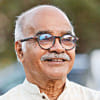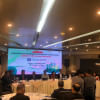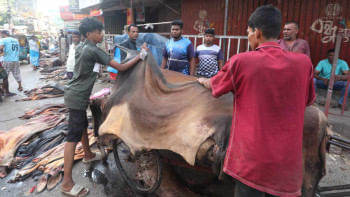Questioning the role of parents

As with global warming, Bangladesh has not contributed to the rise of global terrorism anymore than it has contributed to formulating or debating over the definition of "terrorism" itself. Nonetheless, the country is saddled with the spill-over consequences of this crisis, one being the rise of "posh" militants as apparent from the backgrounds of the Gulshan attackers who broke our traditional belief that the root of terrorism lies in poverty, poor education, and madrasas.
Presently, counter-terrorism measures in Bangladesh are more on the operational front. Although hard interventions produce quick results, they do not give insight into the minds of the radicalised youth. Consequently, there is yet to be conclusive research in Bangladesh that looks into the reasons why people become radicalised.
The common understanding is that educated youth are being "brainwashed" by Islamist preaching on electronic or social media. However, when viewed from the lens of communication studies, this understanding is representative of the obsolete "hypodermic needle" model of mass communication, which assumes that individuals are passive audiences who can be influenced to change their behaviours by the mere injection of "message". While holding propagandistic media content responsible for indoctrinating, we dismiss the fact that an individual—as a receiver of the message—does not operate in isolation; rather his identity develops within a network of relations, contextual and temporal boundaries. Drawing from Leon Festinger's theory of cognitive dissonance, the concept of "selective exposure" in communication studies explains mass media's influence on audience. It holds that an individual does not absorb all the information he is exposed to, but rather exercises choice in selecting, perceiving and retaining only the information which is consistent with his personal beliefs. In light of these theories, therefore, simply exposure to extremist ideology, whether through TV or YouTube videos, does not necessarily account for an individual's decision to adopt that ideology.
To understand the drivers of radicalisation, one should instead try to understand the identity formation of the radicalised youth, as the European Commission's Expert Group on Violent Radicalisation (2008) noted: "Concrete personal experiences, kinship and friendship, group dynamics are needed to trigger the actual process." Various studies conducted within the disciplines of sociology and psychology have tried to explain the motivations behind radicalisation. For example, a study conducted among non-radical Dutch Muslim youth by researchers from universities of Amsterdam and Utrecht (2013) demonstrated that "personal emotional uncertainty, perceived procedural injustice and perceived threat to one's group" can instigate a process of religious radicalisation. Another research study by the University of Liverpool (2009) studied the effects of counter-terrorism regulations on non-radical young British-Pakistanis. The researchers observed that institutional discrimination, misrepresentation of Islam and generalising all British Muslims as "risky others" provoked strong feelings of frustration among the respondents and consequently might make them susceptible to radicalisation.
A review of literature on radicalisation apparently revealed some common attributes of vulnerable youth, such as identity crisis, loss of confidence in authorities, a propensity to take matters into one's own hands and employ religion as a moral response to fight injustice, a sense of belonging towards groups whose ideologies offer a sense of "self". Although the studies were undertaken in other countries, they still give hints about the possible psychological make-up of youth who could become attracted to radical beliefs. These findings can be provisionally extrapolated to understand the birth of educated extremists in Bangladesh and subsequently improve de-radicalisation initiatives.
It can be argued that Bangladesh's current social measures to counter terrorism have not really addressed the significance of parents in developing morality in young people to challenge radical influences. The reason why moral development deserves attention is because a quest for ideals featured prominently in the majority of research findings that looked into the drivers of radicalisation. Based on these findings it can be reasoned that if ideals are applied to radicalise, then they can also be applied to de-radicalise—an approach analogical to the methods of using venom to make anti-venom and diamond to cut diamond.
One way of constructing ideals is by acknowledging the moral vacuum that pervades Bangladesh because of corruption. It is crucial to scrutinise parental roles in corruption because parents constitute the first institution of a society and a corrupt professional is also a parent at the end of the day. Considering that there are cases in which the entire family benefits from illicit earnings and immorality pervades from one generation to the next, the quality of parental upbringing in present Bangladesh deserves serious criticism. Parents who are corrupt are not only failing their own children morally, they are also demoralising others by creating economic and social inequalities. This, in turn, could cultivate resentment and unrest among concerned youth, who, finding no outlet to channel their positive energies, may find a justification to join terrorist groups. In other words, parents involved in institutional corruption, may not necessarily constitute "trigger factors", but they may be contributing to creating "enabling environment" for religious radicalisation.
For the purpose of clarifying this point, a conceptual framework can be developed from Bangladesh's perspective, positioning parents, children and the state to show their interconnectedness and how the moral integrity of each could play a role in the prevention of radicalisation among educated youth.
Adapting from Jean-Jacques Rousseau's interpretation of the social contract theory, parental upbringing can be explained as an implicit "social contract" between parents and the state, each party having duties that need to be reciprocated. On the micro level, parents are expected to cultivate essential citizenship qualities among children, such as norms and obligations, moral virtues like altruism, compassion, truthfulness and so on. On the macro level, the state is expected to build a just society that deepens a child's commitment to moral values. If the state fails in this, young people would find no justification in adhering to values that they acquired and would eventually lose faith in authority.
Unfortunately, at present in Bangladesh there is a complete lack of moral discourse at all levels. There is also a tendency to assign the duty of a child's character-building to religious institutions alone. Furthermore, the prevailing atmosphere of lack of accountability under-qualifies some adults to teach moral values to their children. For instance, when certain parents amongst us pay to avail leaked question papers before admission exams, what example of ethics are we setting before our children? When certain parents accumulate wealth by plundering public funds, bribery and all other "shortcuts", are we teaching principles to our children? What values, through our own actions, are we instilling in our children that will make them morally strong individuals capable of countering the wave of extremist "brainwashing"?
In the absence of moral compass at both micro and macro levels, it would therefore not be surprising to see young people grappling with identity issues and possibly embracing alternatives of the extreme sort to construct meaningful identities.
Against this backdrop, academic textbooks with counter-terrorism messages will ring hollow if they are implemented by GPA-chasing parents who force children to swallow these texts verbatim without emphasising their application in real life. By the same token, educational institutions, civil society and religious teachers, as secondary and tertiary agents of change, can have little effect in countering radicalisation when parents, as primary agents, remain dysfunctional.
Soft counter-terrorism interventions should go beyond traditional "awareness campaigns," or "capacity-building of security forces" to include the concept of building ethical role models. Essentially, the vision should be to challenge ideals with ideals and construct an alter ego of extremist ideology—if Mr Hyde exists, then so should Dr Jekyll. This calls for strongly recognising parents' potential to restrict extremist thoughts by inducting young people in the moral discipline. Accordingly, curbing immorality of parents—as they occupy different positions in bureaucracy, politics, academia, services and businesses—would be a thoughtful intervention to that end.
Nazneen Ahmed is a development professional.










Comments